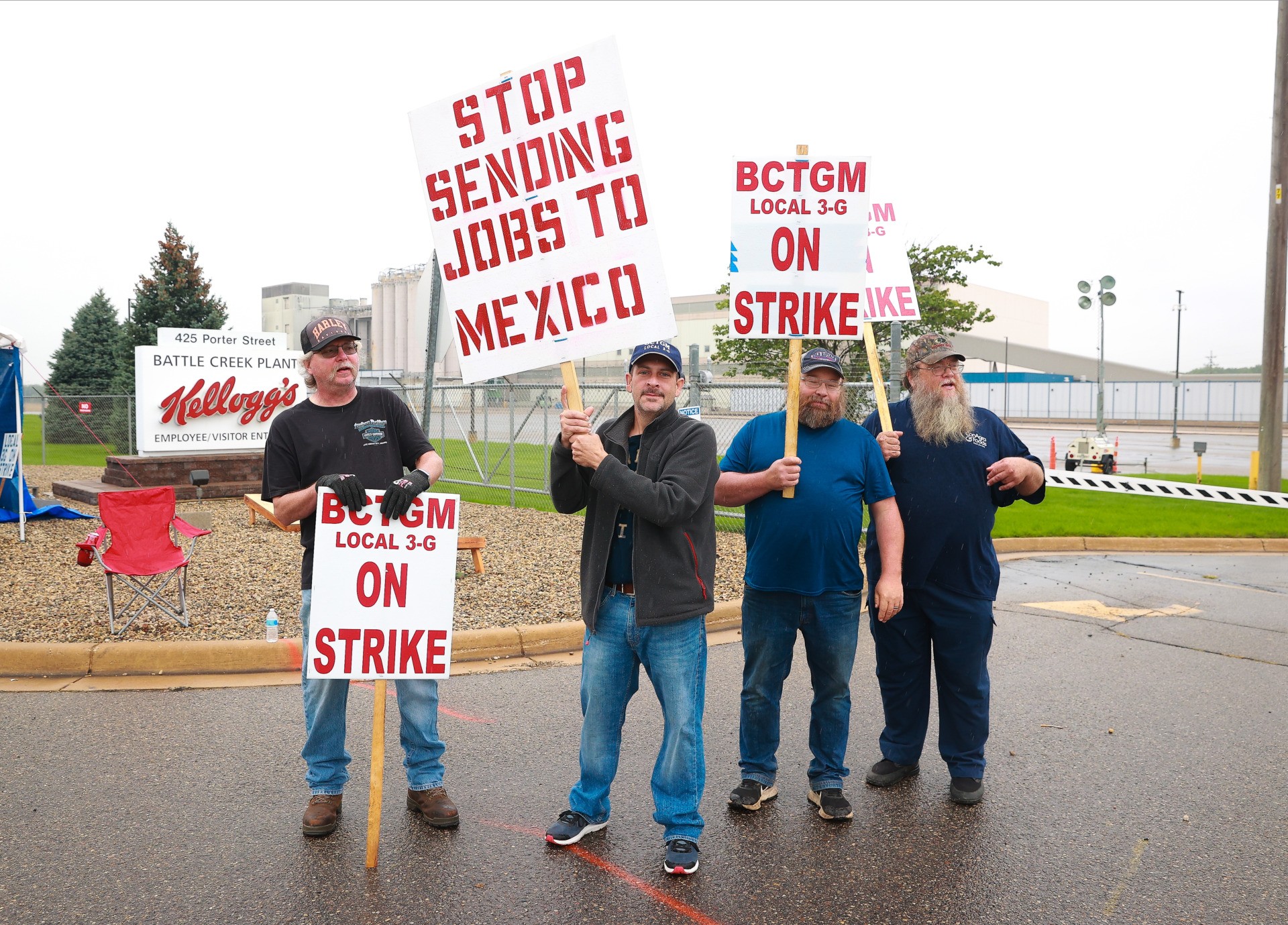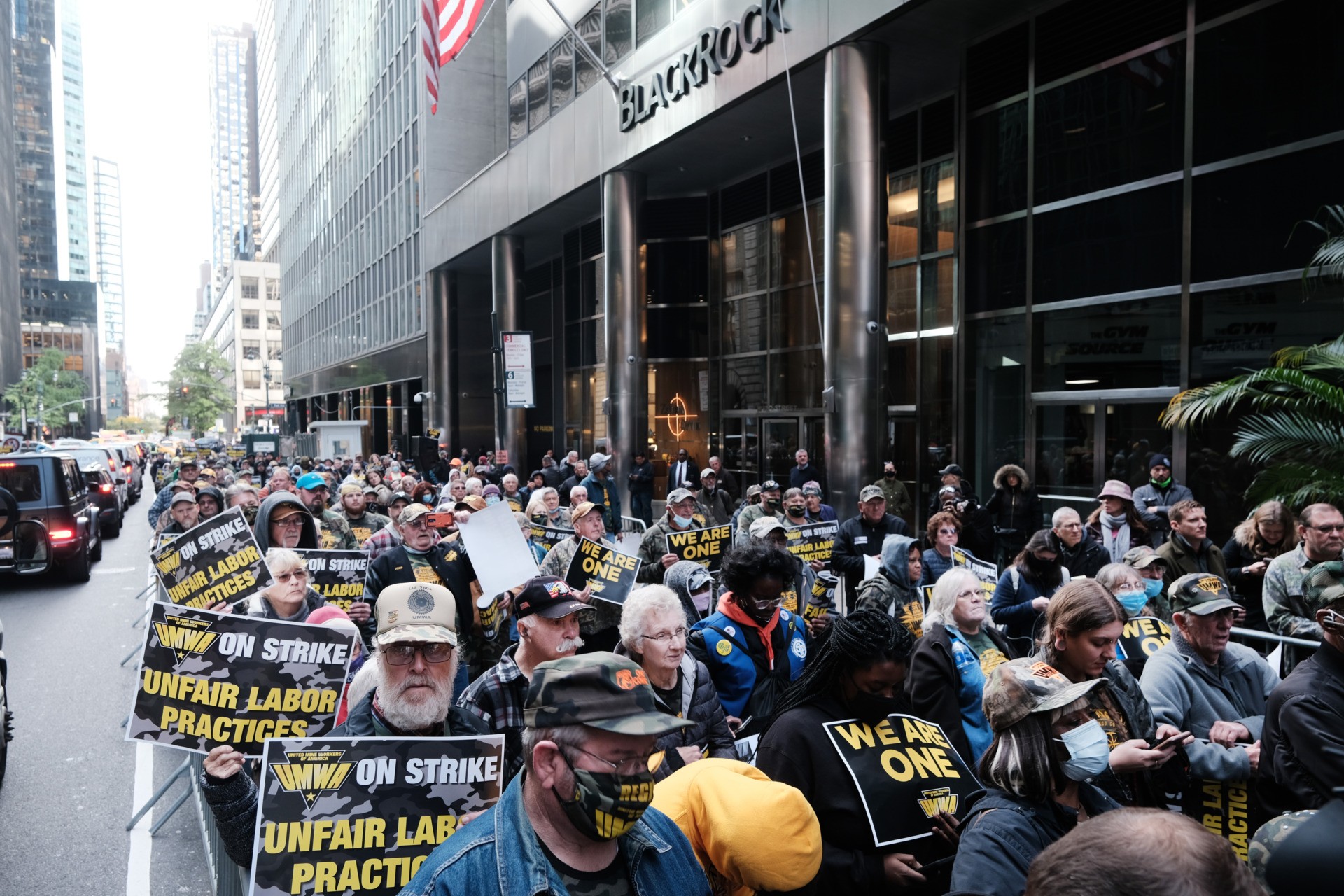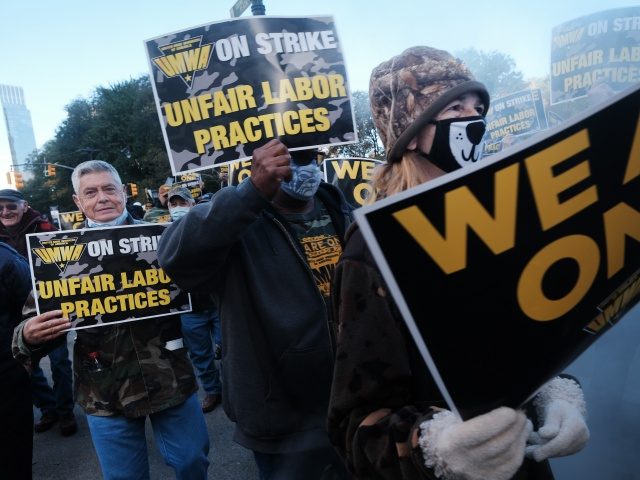A vital demographic of the American electorate, swing state voters in the heartland who side with economic populists against corporate special interests, are being sought after by a number of Democrats running for the United States Senate.
In October 2021, as Breitbart News reported, a pair of Democrat strategists detailed an analysis of the 2020 presidential election which found that American communities devastated the most by globalization and U.S. free trade policy have drifted from the Democrat Party and moved toward Republicans since 2012.
“The share of the Democratic presidential vote in the Midwest declined most precipitously between 2012 and 2020 in counties that experienced the steepest losses in manufacturing and union jobs and saw declines in health care,” the New York Times reported at the time.
The ten states analyzed, including Ohio, Pennsylvania, and Wisconsin, have lost nearly two million manufacturing jobs since the year 2000. From 2012 to 2020, Democrats lost 2.63 million votes in the all-important “factory towns” of the various states.
Now, across Ohio, Pennsylvania, and Wisconsin, Democrats running for Senate are trying to pull these swing voters back into the Democrat Party — backing fiercely populist causes like banning Congress from trading stocks and striking with union workers against corporations vowing to close U.S. plants.
While Sen. Josh Hawley (R-MO) has filed legislation to ban Congress from trading stocks, though no Senate Republicans have signed onto the plan, and House Minority Leader Kevin McCarthy (R-CA) considers backing similar legislation in the House, House and Senate Republicans have ceded much of labor policy, outside of immigration, to the likes of Sen. Bernie Sanders (I-VT) and others.

Kellogg’s Cereal plant workers demonstrate in front of the plant on October 7, 2021 in Battle Creek, Michigan. (Rey Del Rio/Getty Images)
Most notable is Pennsylvania Lt. Gov. John Fetterman (D) who is running for Senate. A spokesman for his campaign told Axios that they are “running an unabashedly working-class campaign.”
Fetterman, last year, raised money to support union workers in Lancaster, Pennsylvania whose jobs were being threatened with offshoring to Mexico by the left-wing Kellogg’s corporation. Only one Republican, Gov. Pete Ricketts of Nebraska, spoke out in support of the workers.
Likewise, Fetterman has rebuked anti-worker environmentalists in the Democrat Party, specifically after they helped get a $1.5 billion project by U.S. Steel canceled in the state in May of last year. The investment would have brought thousands of middle class union jobs to eastern Pennsylvania.
“[I] will never understand why I was one of the only elected officials who pushed for this major project proactively and enthusiastically, while so many others turned their back on the working men and women of the Steelworkers and Building Trades in Allegheny County,” Fetterman said.
Tom Nelson (D), running for Senate in Wisconsin, is touting his work with union workers in the past that helped save a paper mill in Outagamie County from shuttering. In Ohio, last month, Rep. Tim Ryan (D) won the endorsement of the United Auto Workers (UAW) and the state’s carpenters union in his bid for Senate.
Even in cases where historically-GOP constituencies of union workers have protested left-wing corporations, House and Senate Republicans have remained silent. Democrats, on the other hand, have reached out to the workers.
For months, coal miners with the United Mine Workers of America (UMWA) from West Virginia, Pennsylvania, and Alabama have been striking against Warrior Met Coal whose biggest shareholder is Wall Street’s $22 billion firm BlackRock.
House and Senate Republicans have been largely silent as Sens. Elizabeth Warren (D-MA), Sherrod Brown (D-OH), Bernie Sanders (I-VT), and Tammy Baldwin (D-WI) have publicly backed the coal miners in their fight to win a better labor contract.
Last week, for instance, Warren, Baldwin, and Sanders called on BlackRock CEO Larry Fink — a donor to failed presidential candidate Hillary Clinton and Senate Majority Leader Chuck Schumer (D-NY) who celebrated President Joe Biden’s victory — to intervene in the labor negotiations.

Hundreds of members of the United Mine Workers of America march to the Manhattan headquarters of BlackRock, the largest shareholder in the mining company Warrior Met Coal on November 04, 2021 in New York City. (Spencer Platt/Getty Images)
Similarly, in West Virginia, hundreds of union workers with the United Steelworkers have been striking against a company owned by Warren Buffett’s Berkshire Hathaway. Buffett has supported a number of Democrats in the past, including Clinton in 2016 against former President Trump.
Again, as Republicans have kept quiet, Sanders has asked Buffett to intervene and help the union workers win a better labor contract with Precision Castparts Corp.
Though Democrats have stuck their necks out for American workers in labor disputes, they have drastically shifted toward an anti-worker immigration agenda that mimics the agenda of the U.S. Chamber of Commerce, multinational corporations, real estate investors, Wall Street, and giant tech conglomerates.
Less than three decades ago, then-Rep. Barbara Jordan (D-TX) — a fixture of the Civil Rights movement — garnered widespread support among elected Democrats for reducing legal immigration levels and hugely curbing illegal immigration to drive up wages and expand job prospects for America’s poor and working class.
The goal of the nation’s immigration policy, as Jordan argued and which the late Sen. Harry Reid (D-NV) once advocated, ought to benefit the most vulnerable of Americans, not corporate special interests by inflating the U.S. workforce to cut the cost of labor for businesses.
On that end of labor policy, no elected Democrats or those running for office are supporting reducing overall immigration levels to aid working and middle class Americans.
Republicans running for office, while many backing immigration reductions, have focused much of their messaging thus far around crime, the U.S.-Mexico border, and sanctuary city policies rather than as an economic and labor policy.
That messaging has come even as polling has shown that swing voters are most likely to back immigration reductions for the purpose of protecting U.S. wages and jobs. The most prominent policy solution that points to swing voters’ pro-worker stance is mandatory nationwide E-Verify where nearly 7-in-10 back fines and prosecutions for businesses hiring illegal aliens.
John Binder is a reporter for Breitbart News. Email him at jbinder@breitbart.com. Follow him on Twitter here.

COMMENTS
Please let us know if you're having issues with commenting.